Advertisement
Meet The Largest Group Of Female Scientists Ever To Go To Antarctica

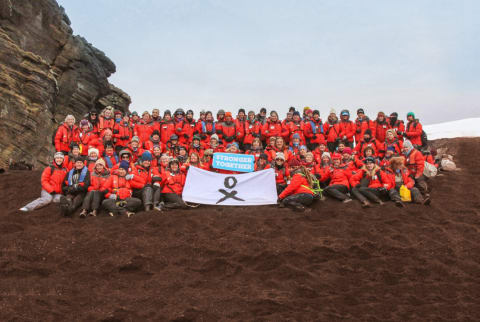
Homeward Bound brings dozens of powerful women in science together to solve environmental issues. Armed with the tagline "Mother Nature needs her daughters," the program has already organized the largest-ever female voyage to Antarctica, and that's just the beginning.
A wild lesson plan.
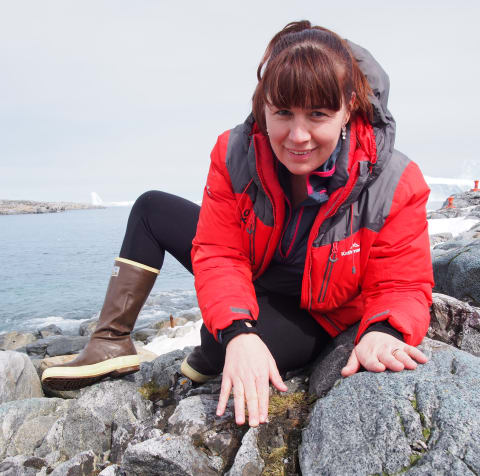
The seeds for the Antarctic voyage were planted years ago. "It seemed like a crazy, far-flung idea whose time had come," explains Homeward Bound co-founder Mary-Anne Lea, Ph.D., of the project's genesis. "The concept seemed so outlandish, risky, and difficult, and yet if realized, it could mean so much to so many."
Lea, a marine ecologist who works out of the University of Tasmania, banded together with three other leaders in conservation to kick-start the initial program. Together, the four women developed a digital curriculum aimed to give other female scientists a better understanding of climate issues of our time, and the confidence to go out and solve them.
"It comes from wanting there to be more bright, intelligent voices out there, ensuring the management of our earth’s resources is sustainable, equitable, and informed by the best science," Lea says. The curriculum features an all-star roster of guest lecturers including Jane Goodall, acclaimed marine biologist Sylvia Earle, and former executive secretary for the U.N. Christiana Figueres.
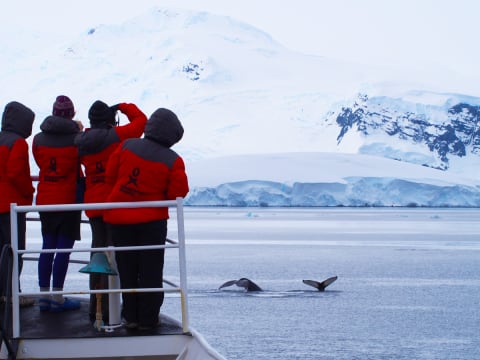
In an age when just 28 percent of the world's research scientists are women, gender biases are deeply rooted in the profession. "All women and men run into challenges as scientists. It's just that women have more," says Justine Shaw, Ph.D., another Homeward Bound co-founder and conservation scientist at the University of Queensland. Information on busting through these biases is woven into the curriculum.
After months of online training, 76 women of all ages and professions, 25 to 65, marine biologists to doctors, set out together in December 2016 for a three-week expedition to the tip of the earth. The hope was that Antarctica's harsh conditions would bond the group over a shared experience unlike any other, and its ephemeral, fleeting beauty would encourage them to put the information they learned in class into action.
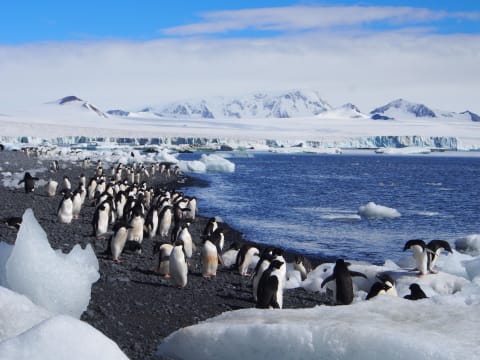
"Antarctica, at least the Antarctic Peninsula, is warming rapidly," says Dr. Lea. "This is resulting in rapid physical and ecosystem change. Breeding seasons are becoming less predictable for many species. It’s a race for all of us to understand how this system will change into the future."
In a striking dichotomy, this sick land looks like a stunning piece of untouched wilderness to the naked eye.
"Standing on the helicopter deck of the icebreaker late at night in the middle of the Southern Ocean and seeing the southern lights—vivid electric pink and neon green lights dancing across the sky—was just unforgettable," Dr. Shaw recalls. "I had never seen anything like it. I couldn't comprehend it. I had a science background to explain what it was, but I wondered how humans had regarded it and reconciled it before my time, thousands of years ago."
The strength to push through.

The weeks of exploring icy landscapes and habitats were rigorous and exhausting, Shaw and Lea, both globally recognized as leaders in Antarctic science, found the positive energy of their group to be infectious.
Shaw's most transformative moment came as she was listening to classical music alongside the rest of the group, when she noticed her colleagues starting to cry over the beauty of their surroundings. Lea says that the immediate attention and respect the group commanded was equally powerful. "I loved seeing the captain, expedition leaders, and members of the crew undertake parts of the training. They were so perplexed by the trip at first—a shipload of women working in Antarctica," she says. "But it didn’t take long for them to become involved as well! I think I knew we were doing something right at that point."
Once they returned to land, Shaw and Lea watched 76 women walk off a boat forever changed and have been humbled to see trip members continue to fight for the planet every day. Take Monica Araya, Ph.D., a global campaigner leading the charge for clean energy in Costa Rica, or Holly North, an Australian park ranger on a mission to change behavior to be more sustainable.
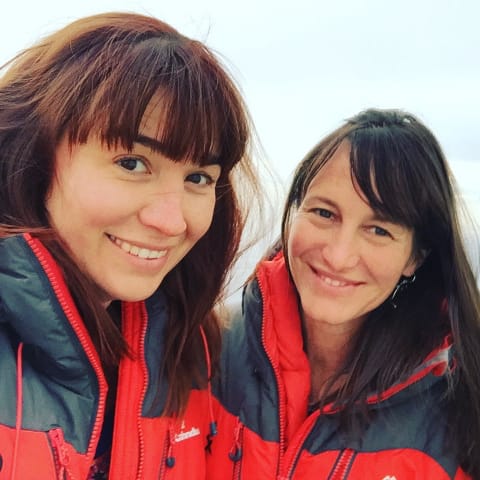
Shaw and Lea look out to the next voyage, to set out in February 2018, with excitement. They're eager to eventually build a coalition of 1,000 women around the globe who have graduated from the program. From there, they hope that lessons they take away from the Antarctic will reverberate through communities worldwide, influencing everyday citizens to get involved in protecting the planet.
"[We hope to] build a connection with this remote and vast continent, and those who live so far from it—yet whose actions have significant impact. Everyone should understand that we can all help minimize carbon emissions and their impacts."
While Homeward Bound is tackling the land, eXXpedition is sending female scientists out to sea. Check out their incredible discoveries on ocean trash.